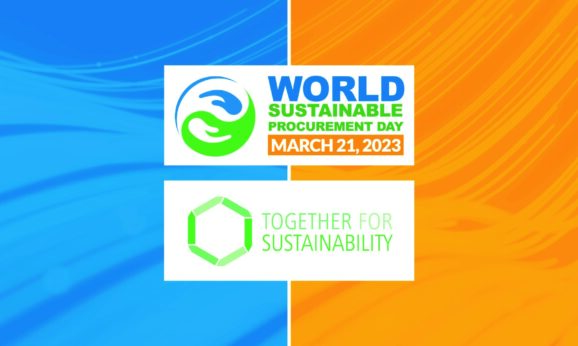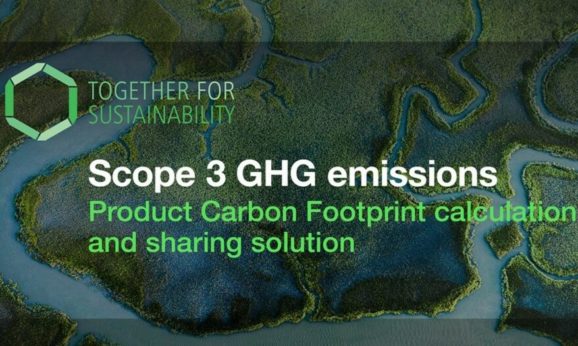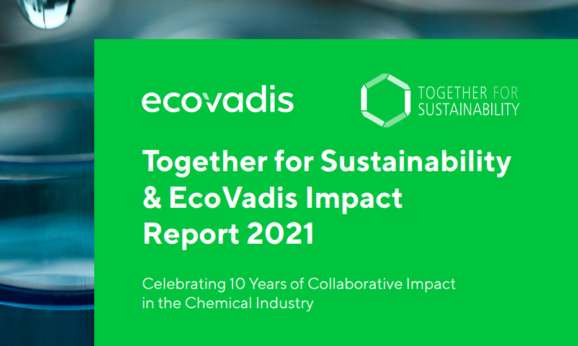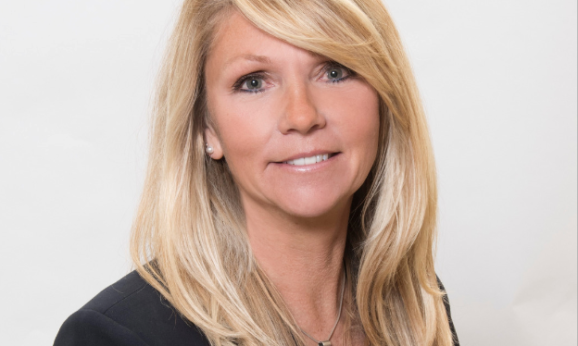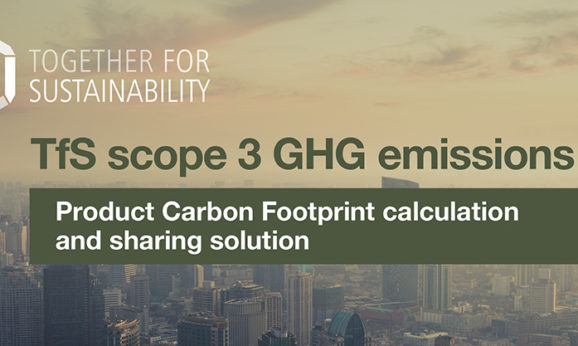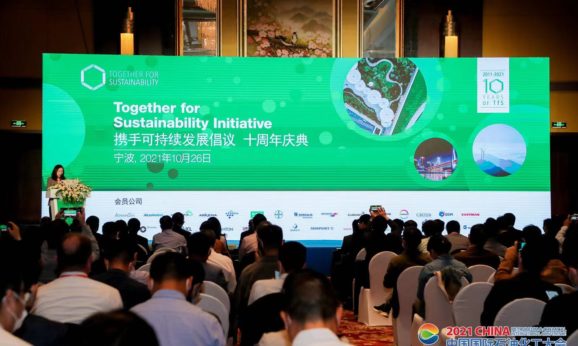Two years of catalysing change: Celebrating the PCF Guideline’s impact

Introduction: Pioneering sustainability in the chemical sector
The chemical industry, heavily reliant on fossil fuel-based raw materials and energy-intensive processing techniques, is a significant contributor to global greenhouse gas (GHG) emissions. However, its inherent culture of innovation positions it uniquely to drive meaningful environmental action. In recognition of this potential, Together for Sustainability (TfS) was founded in 2011 as a member-led initiative aimed at advancing sustainability within the industry. In 2022, TfS launched a landmark guideline designed to enhance climate action and transparency within the chemical sector: the Product Carbon Footprint (PCF) Guideline. Two years later, we’re assessing the impact it has had so far.
Setting the gold standard: The PCF Guideline
With 77% of emissions from chemical corporations classified as Scope 3, understanding, tracking and reducing these emissions is imperative for effective decarbonisation. The PCF Guideline establishes the global gold standard for this endeavour.
This pioneering guideline not only builds upon established international GHG accounting standards but also addresses the unique challenges faced by the chemical sector. It provides tailored guidance for corporations and suppliers, offering a comprehensive, step-by-step approach to calculating the “cradle to gate” carbon footprint of products and services. By illuminating emissions throughout the value chain ‒ from resource extraction to end-user delivery ‒ it serves as a vital resource for benchmarking emissions data and ensuring regulatory compliance.
Expanding influence: Successful outreach and engagement
Decarbonising the industry is crucial for meeting the goals of the Paris Agreement, and to achieve this we must catalyse collective commitment.
The success of the PCF Guideline is reflected in its broad adoption across the industry. TfS members have wholeheartedly embraced this guideline, recognising its value in navigating sustainability regulations amid increasing demands for transparency from customers and regulators alike. Engagement has extended beyond the chemical sector, with TfS members ‒ comprising 20 industry “champions” ‒ utilising their global presence to promote adoption across 12 different industries, including automotive and textile.
To further extend our reach, we launched a comprehensive outreach programme, guided by a dedicated TfS Industry Engagement Workstream of 30 members focused on driving emission reductions through standardisation and collaboration. In 2023 and 2024, we connected with over 70 industry associations and maintained more than 150 active touchpoints with sustainability initiatives to promote the PCF Guideline and other TfS resources.
Olaf Stange, Chair of the TfS Scope 3 GHG emissions programme, Head of Supplier Decarbonisation at Bayer AG, said:
“The influence of the chemical industry in driving sustainable change is significant as it underpins a wide range of sectors ‒ from automotive and construction to personal care. We fully support the work of Together for Sustainability (TfS) and recognise their Product Carbon Footprint (PCF) Guideline as an essential tool for calculating the carbon footprint of products across multiple applications, driving decarbonisation at scale.”
Since the launch of the PCF Guideline, TfS has secured significant endorsements from influential organisations, including the World Business Council for Sustainable Development’s Partnership for Carbon Transparency (WBCSD PACT) and Catena-X. Our efforts have also gained traction in key global markets like China and Japan through partnerships with industry associations, amplifying our influence and reach far beyond what we could achieve independently.
Continuous improvement: Updating the PCF Guideline
The climate crisis isn’t static and, to achieve widespread decarbonisation, emission reduction efforts must continuously evolve too. To keep pace with the developing industry landscape, changing global priorities and feedback from TfS members and their suppliers, in 2024, we updated the PCF Guideline.
The refreshed guide clarifies elements for easier implementation, such as establishing definitions, identification processes and measurement recommendations for “waste materials”; it also harmonises our guidance with that of internationally recognised frameworks such as WBCSD’s PACT Framework, Catena-X and the Global Battery Alliance. They’re timely changes and ones that serve to help members improve data quality ratings and align their practices with industry peers.
Strengthening trust: The PCF Verification Framework
Demand for accurate, credible data disclosure is on the rise. To meet the call, companies must go beyond only data collection – they must ensure data is reliably validated.
In August 2024, TfS engaged with Catena-X on developing the PCF Verification Framework to advise companies – alongside external verifiers and certifiers – on best practice data verification. It has been designed to foster stakeholder trust at three levels:
- L1: A check of PCF dataset completeness and syntactic correctness
- L2: Third-party certification of underlying PCF programmes
- L3: First-, second- or third-party verification of actual PCF data
To ensure the framework is as effective as possible, we have launched a consultation phase, open until 20 December 2024, to seek technical, editorial and general feedback. Visit our website to view the PCF Verification Framework and have your say.
Future outlook: Expanding the toolbox for chemical decarbonisation
As we celebrate the two-year anniversary of the PCF Guideline, it’s encouraging to see its widespread adoption and the positive feedback we have received. However, the urgency of the climate crisis compels us to act swiftly. TfS remains committed to expanding our sustainability toolkit, empowering the chemical and adjacent industries to play a pivotal role in achieving a decarbonised future.











